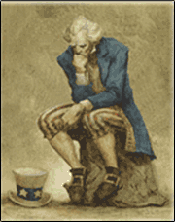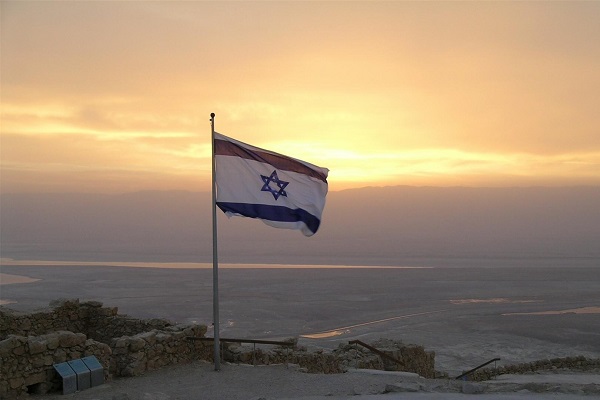
–>
March 12, 2023
Ten years ago, my wife and I moved from America to Israel. As we aged, we needed a change. After a decade, we remain outliers.
‘); googletag.cmd.push(function () { googletag.display(‘div-gpt-ad-1609268089992-0’); }); }
One can read about life in Israel and joke about its troubles, insufferable bureaucracy, and political quandaries. To “get” Israel, “to be” an Israeli, the immigrant has to speak Hebrew. Otherwise, you are and always will be a transient inhabitant. Every aspect of the culture, the human interactions, all revolve around the essence of communication.
This is the message this reader gets from personal experience and from a new book by Joel Chasnoff and Benji Lovitt. They are two other North American transplants who recently published Israel 201: Your Next-Level Guide to the Magic, Mystery, and Chaos! of Life in the Holy Land (Gefen Publishing House Ltd., 2023).
The authors offer a deeper look into Israeli society and culture than the plethora of salutary books produced every year that view the country through rose-colored glasses. The book is much more a work of solid social anthropology than a comedic tome I expected from two highly accomplished professional comedians.
‘); googletag.cmd.push(function () { googletag.display(‘div-gpt-ad-1609270365559-0’); }); }
Their opening line, from David Ben-Gurion, underpins the argument I made earlier. He said, “We know we’ll be a normal country when Jewish prostitutes and Jewish thieves conduct their business in Hebrew.” Almost every topic the authors cover over 265 pages has the language at its core. For example, the “Sabras” excuse their short shrift for waiting in line with “if you don’t like it, don’t live here.” Hebrew is an honest, brutal language, spoken by people with disdain for being seen as a sucker or dope, a “Freier.”
I suggest the reader take their “Pre-Course Quiz: How Israeli Are You?” before and after reading the book. Little has been absorbed into my being. The quiz made me realize I am not cooked. I wore a suit to a cousin’s outdoor wedding on a hot Israel summer day. I can order a sandwich, but admittedly, I don’t always get what I think I ordered. We got our passports from a patient and helpful Hebrew-speaking clerk.
Israel 201 contributes to my awakening. Israel is another people’s country. I benefit from its official Jewishness, and learn my place in history from the archaeological sites of my heritage, and Israel upticks my Judaism. I learn more and live by the Jewish calendar. But I am not an Israeli.
Chapter One examines the Israeli psyche intimately weaving the unique language of the land with the thinking of the people. The book contains a fascinating interview with a professor of linguistics who loves Hebrew. He “kvells,” describing roots and make-ups of words to Jewish life and culture.
Seven more chapters cover complex issues about Jewish life in a Jewish state; government, policies, and the education system; negotiating work, military service, arts, culture, sports, and leisure. Their tips about the phases of moving to Israel might help relieve depression that inevitably sets in, letting the “oleh” know they are not alone.
To be transparent, we met Benji Lovitt at dinner in our son’s house soon after we arrived in Israel. He knows our children and grandchildren well enough to rate them for their humor and sarcasm.
‘); googletag.cmd.push(function () { googletag.display(‘div-gpt-ad-1609268078422-0’); }); } if (publir_show_ads) { document.write(“
Chasnoff and Lovitt explore the question of why anyone would choose to live in Israel. One huge answer, they conclude, is “kehilatiyut.” That is Hebrew for the community. They talk about the bonds that bind Jewish people, the connections, and the shared narrative. The book is not irreverent, but it describes Israel as a lurching work in progress, to borrow a phrase.
Their comedic sense comes through in three pages about “Polite versus Nice: What Israelis Say about Us.” Chasnoff and Lovitt offer insight into how Israelis see Americans: “Americans are polite but not nice; Israelis are nice but not polite.” The authors flesh this out with examples of how Americans and Israelis say the same thing, but the meanings are different.
The Afterword is brilliant. It reports their discussion with futurist Dr. David Passig, professor at Bar-Ilan University. Most books on Israel lean heavily on the past because Jewish and Middle East history is mysterious and eventful. It shaped the people and nation into what they are today. Chasnoff and Lovitt want to know, “What comes next?” It’s an enlightening addition worth the cost of the book. Passig’s future assessment is neither dreamy nor funny, but sobering.
It took years to organize and collect the data for Israel 201. The authors interviewed neighbors and friends, university professors, and cultural assessment experts. I wish they had included an index and that Benji had givevn some credit to the Goldmeiers in the acknowledgments for his sharp wit. Nonetheless, the fruits of their labor come through in this jam-packed resource, which I highly recommend.
Dr. Harold Goldmeier is a teacher, business consultant, public speaker and financial writer who taught at Harvard and now lives in Beit Shemesh. He is a free public speaker for community groups; manages an investment company; and consults and writes about business, social, and political issues. He can be reached at [email protected].

Image via Pixy.
<!– if(page_width_onload <= 479) { document.write("
“); googletag.cmd.push(function() { googletag.display(‘div-gpt-ad-1345489840937-4’); }); } –> If you experience technical problems, please write to [email protected]
FOLLOW US ON
<!–
–>
<!– _qoptions={ qacct:”p-9bKF-NgTuSFM6″ }; ![]() –> <!—-> <!– var addthis_share = { email_template: “new_template” } –>
–> <!—-> <!– var addthis_share = { email_template: “new_template” } –>







